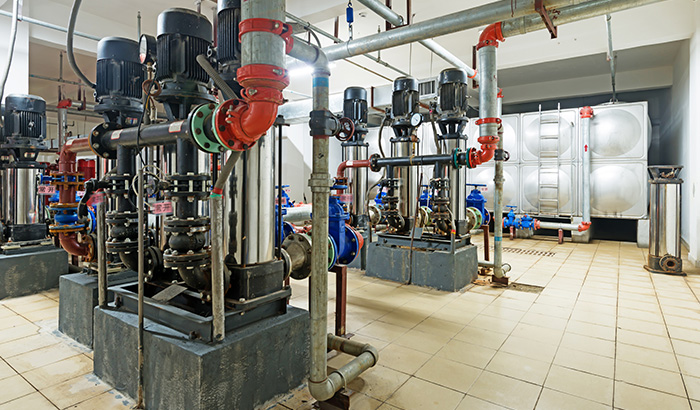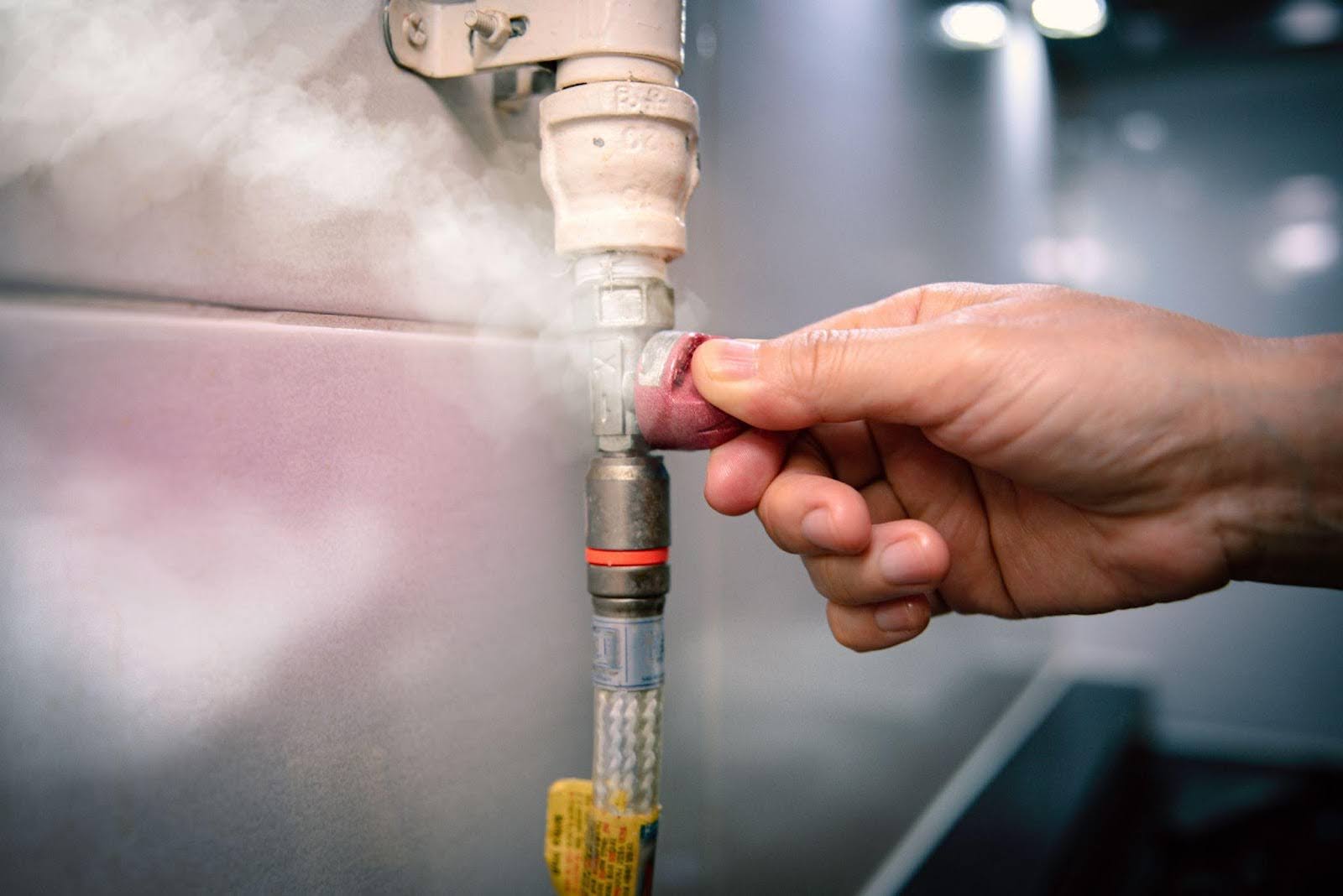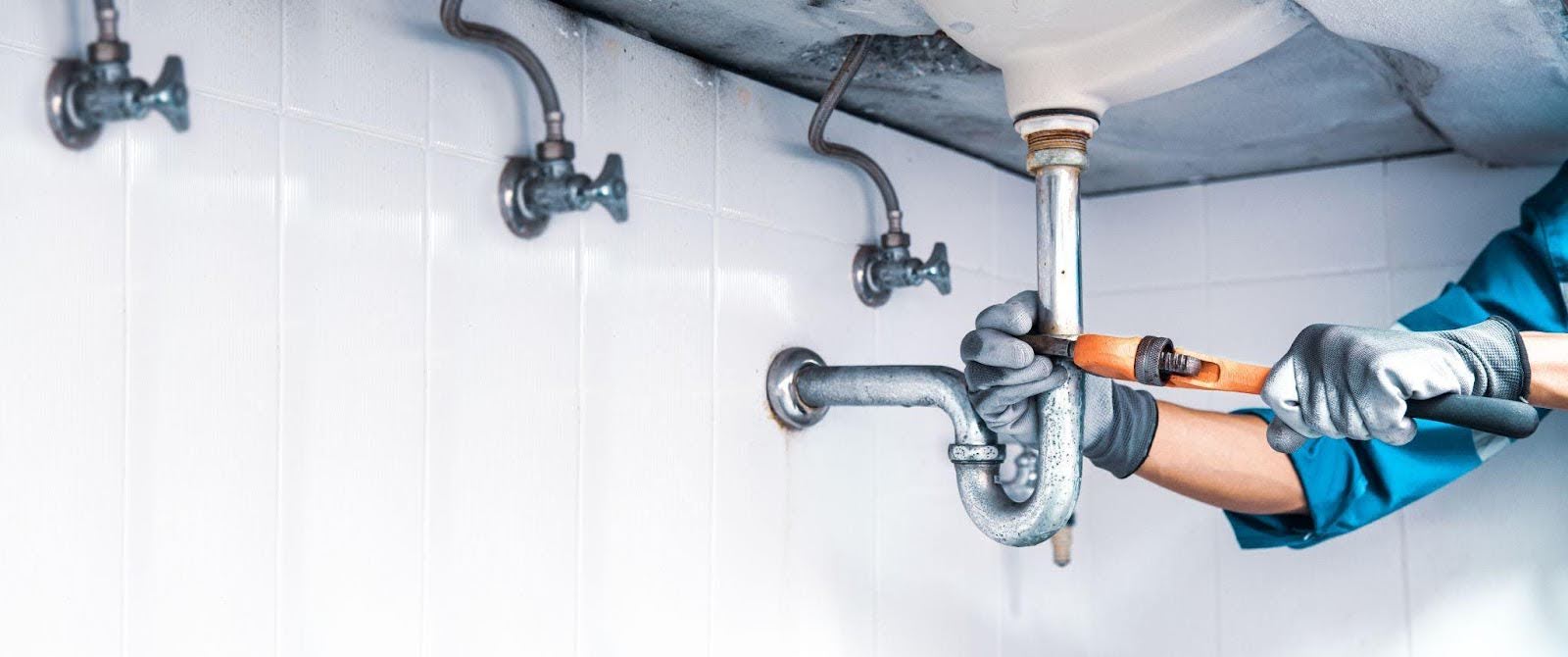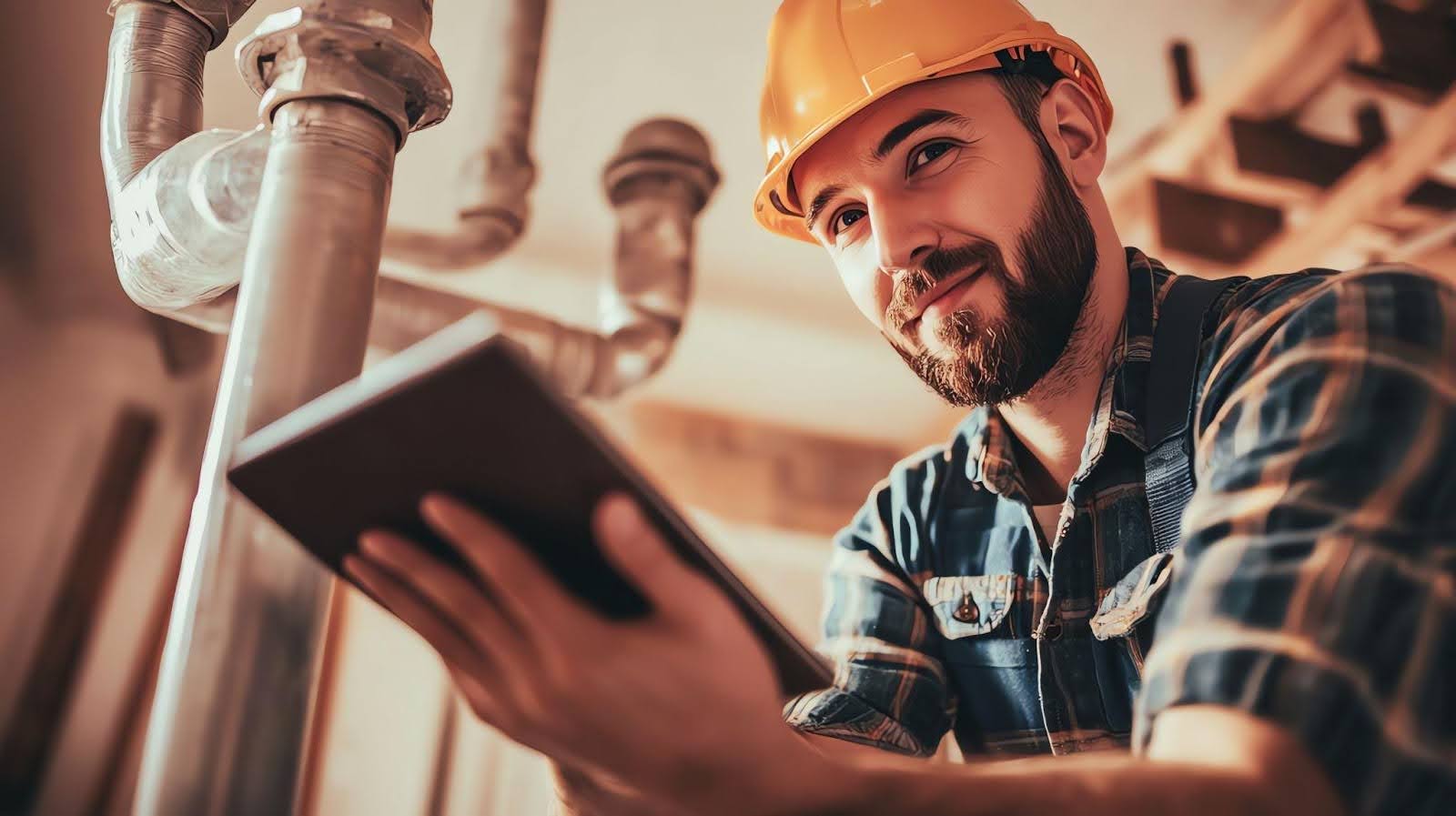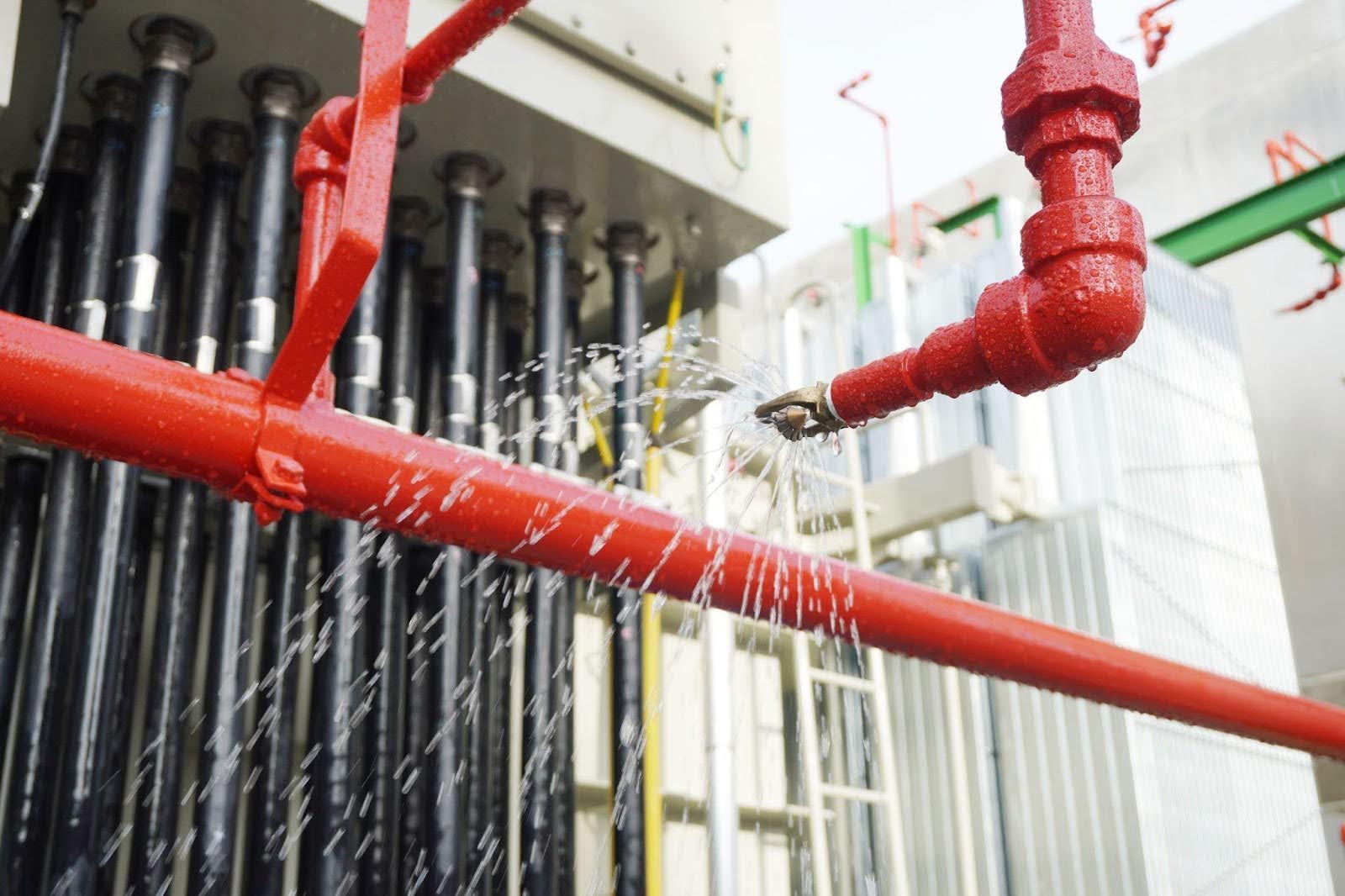At the heart of every commercial plumbing system lies the intricate network of water supply lines and distribution. These pipes carry clean, potable water from the municipal source or a well to various points within the building. From restrooms and kitchen areas to water fountains and sprinkler systems, water supply lines ensure a steady flow of water for essential daily activities.
The drainage and sewage systems are equally vital, efficiently eliminating wastewater and sewage. This network of pipes, drains, and vents prevents backups, clogs, and odors, maintaining hygiene and averting structural damage from standing water.
Ventilation and gas lines, often unseen, are essential for a safe and comfortable environment. Ventilation pipes ensure proper air circulation, preventing moisture buildup and mold. Gas lines supply fuel for heating and cooking, which is crucial for day-to-day operations.
The functionality of a commercial building relies on plumbing’s seamless interaction. A well-designed system enables smooth business operations and tenant comfort.
Consider the inconvenience of water pressure fluctuations, faulty toilets, or odors due to inadequate ventilation. Plumbing ensures uninterrupted productivity and a favorable environment for occupants and visitors.
The Impact of Poor Plumbing on Commercial Building Value
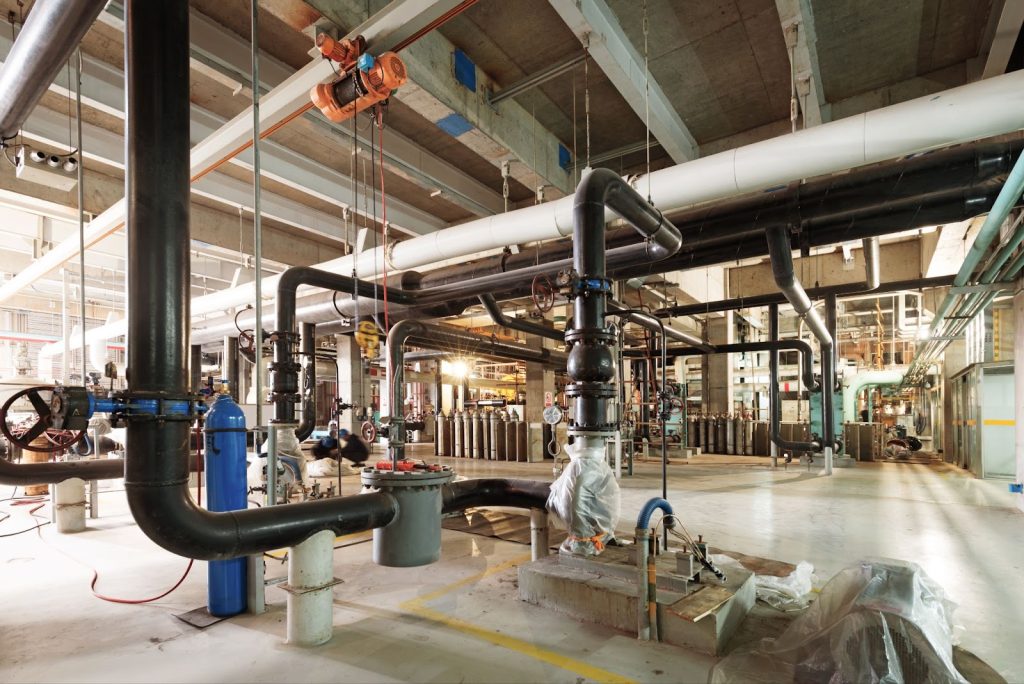
Decreased Functionality
Picture this: a small, unnoticed leak in a pipe gradually transforms into a silent destroyer, compromising walls, floors, and even structural integrity. Left unchecked, leaks lead to water damage that weakens building materials, causing costly repairs and posing safety hazards.
Poor plumbing can result in frustratingly low water pressure and inadequate water flow. Occupants struggle with slow-filling toilets, ineffective faucets, and time-consuming tasks. This not only hampers productivity but also affects the overall tenant experience.
Clogged drains and backups disrupt the harmony of a building’s daily operations. From toilets that won’t flush properly to sinks that refuse to drain, these issues create inconveniences that impact business operations and tenant satisfaction.
Health and Sanitation Concerns
A compromised plumbing system can lead to stagnant water, which becomes a breeding ground for harmful microorganisms. Bacteria, viruses, and other pathogens thrive in neglected systems, posing a significant health risk to occupants and visitors.
Damp environments resulting from leaks or poor ventilation encourage the growth of mold and mildew. These not only mar the appearance of the building but also trigger allergies and respiratory issues among occupants.
Inadequate ventilation and sewage issues can lead to foul odors permeating the building. Unpleasant smells create discomfort and signal poor hygiene standards, affecting the overall perceived quality of the property.
Aesthetic and Reputation Damage
Persistent leaks can lead to unsightly stains on walls and ceilings, giving the impression of neglect and poor maintenance. These visual cues erode the building’s aesthetic appeal and give a negative first impression to potential tenants or buyers.
Persistent bad odors create an uncomfortable atmosphere for tenants, impacting their satisfaction and willingness to continue occupying the space. An unpleasant indoor environment can directly influence tenant retention and lease renewals.
In today’s digital age, tenant dissatisfaction finds its way onto online platforms quickly. Poor plumbing experiences translate into negative reviews, harming the building’s online reputation and potentially deterring future tenants or investors.
Financial Consequences of Poor Plumbing
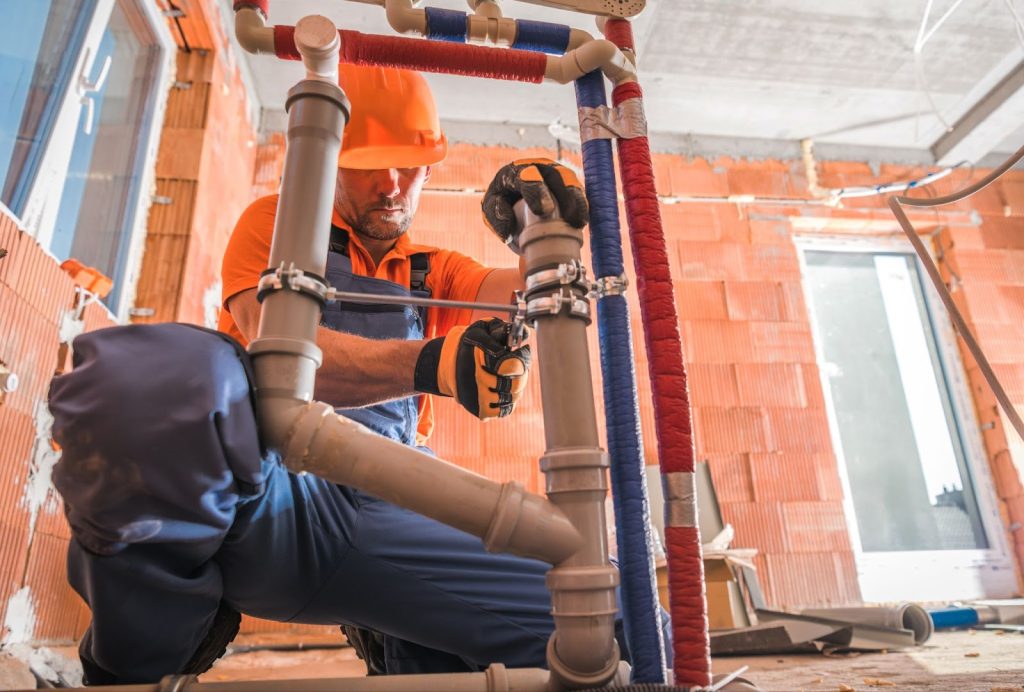
Increased Maintenance Costs
Poor plumbing systems demand constant attention. Frequent repairs and component replacements become the norm, leading to a drain on your maintenance budget. What starts as a minor issue can quickly escalate into a major expense if left unaddressed.
Neglected plumbing can lead to sudden emergencies that require immediate attention. Emergency plumbing services come with premium costs, adding an unplanned financial burden to your operational expenses.
Tenant Turnover and Vacancy Rates
Tenants seek comfort, convenience, and functionality in the spaces they occupy. Poor plumbing conditions create an unfavorable impression, making it difficult to attract quality tenants. Even if tenants initially move in, they’re likely to vacate sooner due to the recurring inconveniences.
High tenant turnover and extended vacancy periods directly impact your rental income and occupancy rates. A building with reputation-damaging plumbing issues struggles to maintain consistent revenue flow, affecting your bottom line.
Property Depreciation
When potential buyers or investors evaluate a property, they consider every aspect contributing to its value. Poor plumbing can be a red flag that indicates negligence in property management. This diminishes the property’s overall appeal and deters potential buyers or investors.
A building with neglected plumbing will inevitably have a lower resale value than similar, well-maintained properties. Prospective buyers factor in the cost of plumbing repairs and improvements when negotiating prices, further diminishing your return on investment.
Regulatory and Legal Implications
Violations of Building Codes
Commercial plumbing systems are subject to stringent building codes and regulations. These codes ensure that buildings are safe, functional, and conducive to human habitation. Poor plumbing that fails to meet these standards can lead to violations that compromise safety and result in serious legal consequences.
Non-compliance with plumbing codes can result in legal penalties and hefty fines. Building authorities take violations seriously, and fines can escalate depending on the severity and duration of the issues. Resolving the violations often involves investing time and resources into necessary repairs and upgrades.
Tenant Safety and Liability
Inadequate plumbing can lead to health hazards for occupants. Waterborne diseases, mold-related allergies, and exposure to harmful gases are serious concerns. If tenants or visitors fall ill due to poor plumbing conditions, you could face potential lawsuits and legal claims seeking compensation for medical expenses and damages.
Landlords are legally responsible for providing tenants with a safe and habitable environment. This includes maintaining functional plumbing systems that meet health and safety standards. Failure to fulfill this duty exposes you to legal liability and damages your reputation as a responsible property owner.
Mitigating the Effects of Poor Plumbing
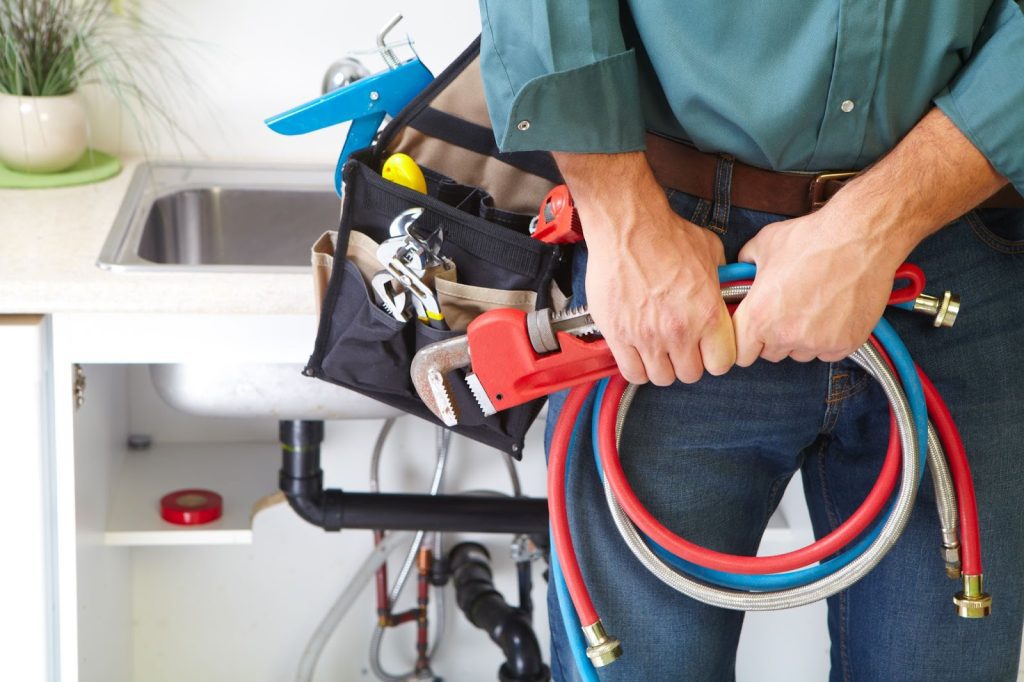
Regular Inspection and Maintenance
Regular plumbing inspections are the foundation of preventing plumbing issues from snowballing into major problems. Scheduled assessments allow you to identify minor concerns before they evolve into costly and disruptive disasters. Think of these inspections as a way to catch plumbing issues while they’re still in their infancy.
Timely maintenance is the key to preventing minor inconveniences from becoming substantial headaches. Leaks, clogs, and wear and tear need immediate attention to ensure they don’t compromise the building’s functionality or the safety of its occupants. By tackling problems early on, you save time, money, and the stress of dealing with more extensive damage later.
Upgrading and Modernizing Plumbing Systems
Consider modernizing your plumbing system with efficient fixtures and durable materials. Low-flow faucets, water-saving toilets, and energy-efficient water heaters reduce utility bills and contribute to a greener footprint. This investment pays off over time by enhancing operational efficiency and tenant satisfaction.
Embrace technology that optimizes water and energy consumption. Smart sensors, leak detection systems, and automated controls can monitor your plumbing system’s performance in real time. They provide data insights, enabling you to address issues promptly and proactively manage water usage and energy expenditure.
Professional Plumbing Services
When plumbing issues arise, don’t cut corners by attempting DIY fixes. Engage certified plumbers with the expertise to diagnose problems accurately and perform repairs precisely. Proper repairs and installations ensure the longevity of your plumbing system and prevent recurring issues.
Develop a clear emergency response plan for urgent plumbing matters. Quick and effective actions during emergencies minimize damage and associated costs. Knowing whom to contact and having a plan in place can make a significant difference in managing crises effectively.
Quality Commercial Plumbing Services From Salisbury Plumbing
At Salisbury Plumbing, we are dedicated to fixing commercial plumbing issues promptly and are committed to providing the best service possible. We understand the importance of a functional plumbing system in maintaining your business’s operations and reputation.
Call us today at (385) 317-4454 or use our online form to get a free estimate for all your commercial plumbing needs, and experience the difference of working with a trusted partner in plumbing excellence.
toto slot

